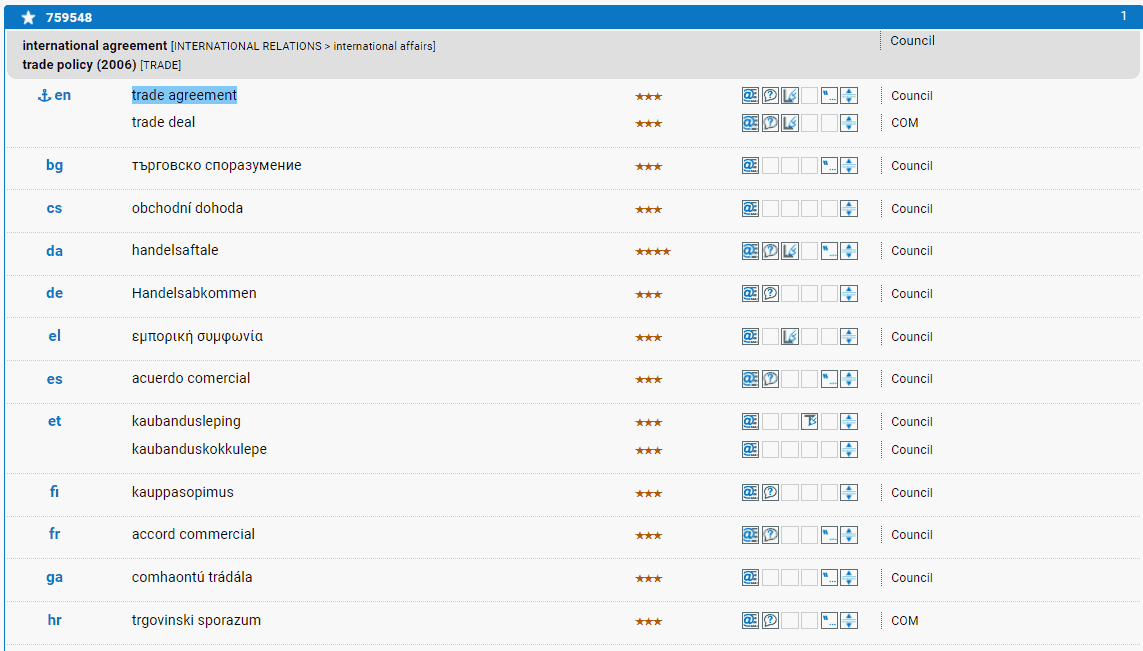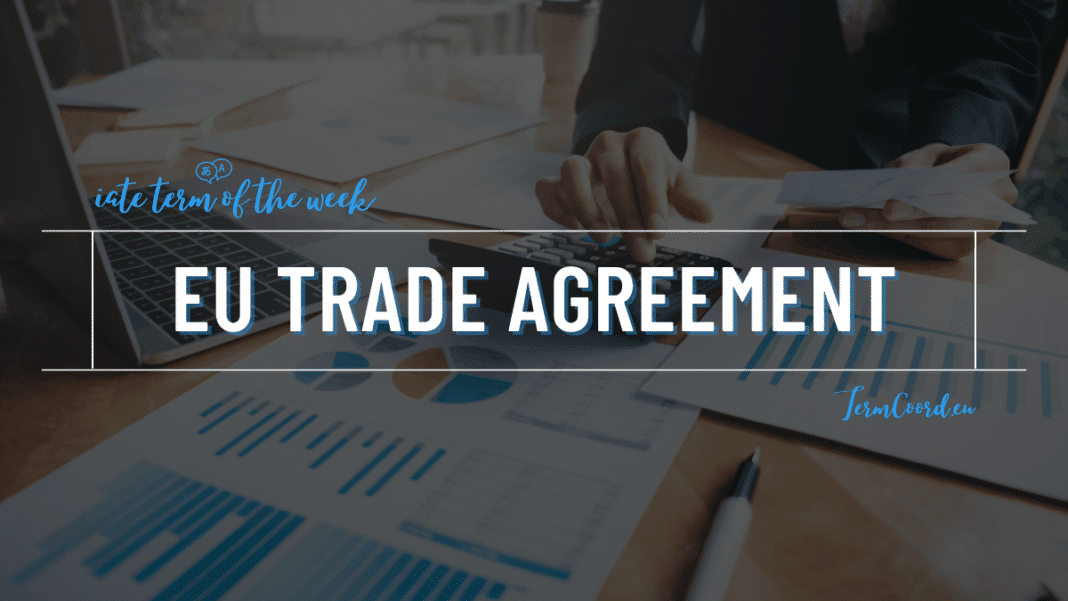The EU Trade Agreement is a term signifying the form of the trade agreements, which are used by the European Union within the framework of its trade relations with third countries. The EU Trade Agreements also serve as a mean of promoting the European principles and the European values ranging from democracy and human rights to environment and social rights.
Classification
Depending on their content the EU Trade Agreements can be classified in four (4) major categories as follows:
- Economic Partnership Agreements (EPAs): These trade agreements support development of trade partners from African Caribbean and Pacific Countries.
- Free Trade Agreements (FTAs): These are the trade agreements which enable reciprocal market opening with developed countries and emerging economies by granting preferential access to markets
- Association Agreements (AAs): This is the classification used for all kinds of the broader political agreements
- Partnership and Cooperation Agreements (PCAs): This is the classification corresponding to the non-preferential, broader trade agreements
Every trade agreement aligns with the legislative framework set out in Article 218 of the Treaty of the Functioning of the European Union. On May 22, 2018, the European Council adopted conclusions in relation to the ways in which any trade agreement ought to be negotiated and concluded on behalf of the European Union. In specific, there are two issues on which the European Council focuses so as to ensure the liability and high-quality operation of each trade agreement. It is essential for the European Council to ensure that the European Commission manages to recommend and establish the splitting between separate agreements related to investment and other trade provisions as well as to reinforce the Council’s role in the trade negotiations.

The European Union abides by the principles of the World Trade Organization (WTO). These principles protect trade agreements from any kind of violation performances and/or actions. The anti-discrimination policy for eliminating any kind of discrimination among trading countries, the equal treatment of imported and locally produced products, the appliance of predictability market laws to help all countries and their responsive markets to enjoy the benefits of competition, the rules applied through the form of tariffs or non-tariff barriers, are the basic principles operating as a foundation of the EU Trade agreements.
There seems to be no doubt of the benefits about the EU trade agreements. New markets open for EU goods and services, investment opportunities and protection of these investments opened, custom duties are eliminated, and this makes trade cheaper, transit through customs is facilitated and trade is made faster, to name but a few.
It is the MIC (Multilateral Investment Court) which can operate as a permanent body to decide investment disputes and deal with them effectively. The EU is the largest exporter and importer of foreign direct investment. Encouraging and retaining investments remains vital. Therefore, it is of high importance that the EU manages to deal with the legislative and operational nature of Trade agreements.
Sources
European Union Trade Agreements, [ONLINE], Available at https://www.consilium.europa.eu/en/policies/trade-policy/trade-agreements/ [Accessed 31 August 2020]
Trade Agreements: what the EU is working on [ONLINE], Available at https://www.europarl.europa.eu/news/en/headlines/world/20161014STO47381/trade-agreements-what-the-eu-is-working-on [Accessed 31 August 2020]


